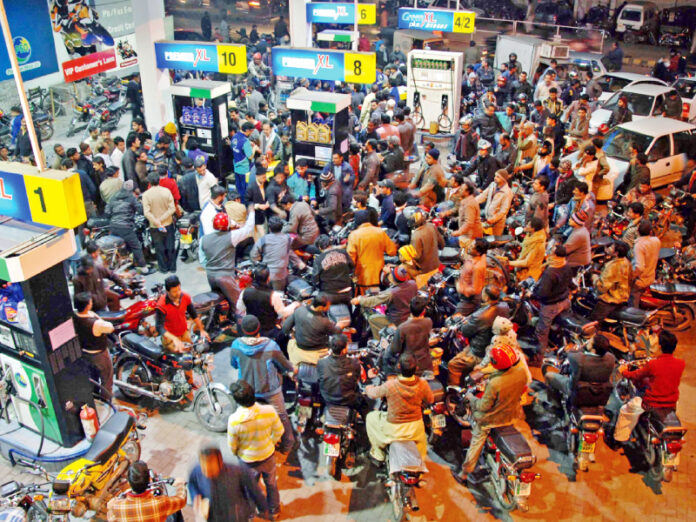ISLAMABAD: The government has started taking action against those behind the countrywide petrol shortage in June 2020 in light of recommendations submitted by a cabinet committee that probed the ‘shortage’ last year.
The government has also directed the Petroleum Division, Maritime Affairs Division and Oil and Gas Regulatory Authority (OGRA) to address the shortcomings which led to the issue.
The federal cabinet had constituted a committee comprising Minister for Planning Asad Omar, Education Minister Shafqat Mahmood, Human Rights Minister Dr Shireen Mazarim Railways Minister Azam Swati and Shahzad Akbar to analyse the report of a commission which was formed to probe the said crisis December 15, 2020.
This committee recommended administrative actions including, the removal of then Special Assistant to the Prime Minister (SAPM) on Petroleum, Nadeem Babar, having the secretary Petroleum to report to the Establishment Division, removal and transfer of officers of the Directorate General of Oil, removal and transfer of port authority officers who were involved with the alleged delay in berthing ships, appointment of professional officers on technical positions through objective criteria, the creation of a monitoring cell in the Petroleum Division for reliable data collection, to end reliance on Oil Companies Advisory Council (OCAC) during analysis and decision making, establishment of new testing labs able to test all petroleum products as well as mandatory testing of imported petroleum products.
The cabinet committee also suggested the government to order FIA to carry out forensic audit over the failure of maintaining a minimum of 20-days stocks as per the license requirement of OMCs over a prolonged period, failure to ensure lifting of products by OMCs from local refineries, apparent maneuvering of berthing plan of vessels, failure to ensure implementation of PRM decisions regarding imports, fake sales, hoarding and discrepancies between the reported and actual supplies to retails outlets by OMCs, illegalities regarding provisional marketing licenses to OMCs, unlawful joint ventures (JVs) and hospitalities, illegal private storages and illegal retail outlets.
Moreover, the committee recommended an inquiry into the affairs of BYCO Refinery and OMC and reported involvement in sale of illegal petroleum products, and also an inquiry of companies involved in adulteration of petroleum products.
It was further recommended that OGRA Ordinance 2002 may be reviewed to remove the ambiguity regarding the roles and responsibilities of the Petroleum Division and OGRA and be assigned to the Ministry of Law and Cabinet Division.
Similarly, further action that the government may take against culprits behind the petrol crisis includes making sure that OGRA redefines punitive measures against illegalities, irregularities and like figure fudging to show fake supplies, establishing illegal petrol pumps, sale of smuggled and adulterated products, construction of strategic storage of refined products and crude oil, up-gradation of outdated refineries with modern technology to reduce cost, increase efficiency and provision of environment friendly products to the citizens.




